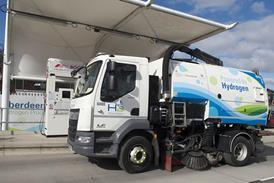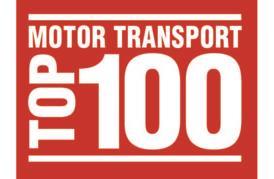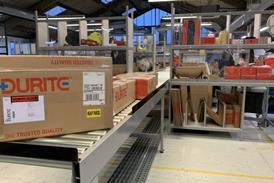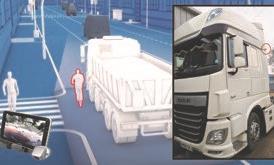On 10 January Morrisons launches its first online retail offering across the Midlands – a tie-up with Ocado – making it one of the last of the big supermarkets to enter the world of home delivery.
It was the culmination of months of change at Morrisons that has seen it make modifications across its entire supply chain for supermarkets, convenience stores and online. Speaking at the IGD Summit in London late last year, Malcolm Basey, supply chain director at Morrisons (pictured), explained how the organisation had coped, and why one of the UK’s largest own-account operators had decided to work with a partner like Ocado, with which it signed a 25-year deal in May 2013.

“Over the next five years online will be the fastest-growing channel,” he said. “Why would we take this approach? We have done this for three core reasons. We believe that Ocado have the best systems and logistics in this area. If we were to try and develop the same systems and automation ourselves it would take a lot of time, a lot of cost and there would be some risk.”
Morrisons took on half of Ocado’s warehouse in Dordon, Warwickshire, investing £46m in expanding the site to accommodate its products, integrate its systems and establish a network of delivery spokes.
“We see the fulfilment centre as the best for the customer,” explained Basey. “This is because we have a more controlled environment that has a better chance for high levels of availability and avoids unwanted substitutions.
Fresher product
Equally, by concentrating the volume into one place it also allows us to provide a fresher product, and that is important to our core brand values.
“The third reason is we believe the fulfilment centre gives us the best chance to reach markets where we are under-represented. You can’t deliver from a store if you don’t have a store in that area and that is why we have gone down this particular route.
“The flow will be from fulfilment centre to hubs and then out to customers. The supply chain will replenish the fulfilment centre and is the same as we use in our convenience stores and our supermarkets.”
Morrisons started opening convenience stores in November 2012 and now has approximately 100 across the country. Basey said he expected this route to market to grow similarly in 2014 but over the past two years it has had to put in the right infrastructure to support the growth.
“We made changes from our normal supply chain routines [and] we have put in place deliveries via roll-cages, where as in our supermarkets they are all made on pallets. This is because [roll cages] are much more manoeuvrable in smaller shops and it avoids putting in any mechanical handling equipment.
“We are [also] setting up a network of convenience distribution centres. These are mostly stockless environments where we cross-dock orders and break down bulk. We have opened two this year, one in the south Feltham and one in the north in Bury. [In 2014] we plan to expand this further, and clearly there is some synergy between these hubs and what we are doing online.”
Convenience stores
Back in June Morrisons expanded its contract with Wincanton to handle logistics for convenience store delivery in the north of England, having signed the deal for the south of England in April.
Finally, in its core supermarket supply chain, Morrisons has been making changes across its entire transport operation in a bid to improve productivity in the network. In 2012 Morrisons signed a deal with Bibby Distribution to run five of its regional consolidation centres across the country, the same year as it renewed its contract with Norbert Dentressangle for the operation of two of its distribution centres in Scotland. However Basey revealed that one of the ND run sites, in Bathgate, would be collapsed into the main Scottish RDC in 2014.Improving efficiencies and reducing road miles was also cited as the reason behind the closure of its Swan Valley DC in Northampton last year.
Basey said that in 2013 it had converted more stores to be able to accept double decker trailers and now has 100 units in operation. It is also running 78 15.65m longer semi-trailers in our operation: “These trailers are helping us on those small trips when an order just doesn’t fit. It gives us flexibility and is reducing those extra trips.
“We are getting savings from the way we are running our routes. [In 2013] we remodelled our routes to optimise them and make sure they are as efficient as they can be. These elements are driving savings of 130,000kms a week.”









![Mercedes-Benz_eActros_600_(1)[1]](jpg/17820_mercedesbenz_eactros_600_11_978080.jpg)





